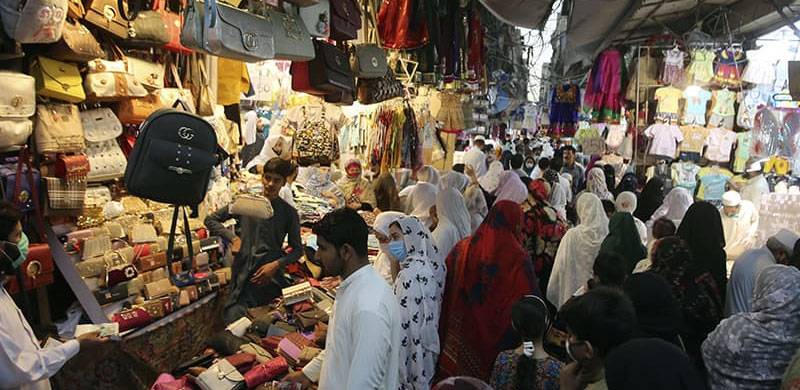
Economists and columnists are pondering upon the possibility of a charter of economy. They present long- and short-term scenarios -- and also debate on its futility, as it may curtail choices available to political parties.
A pertinent question to ask at this point is: what economy needs a charter? State’s economy or people’s economy?
Economy is what people do to meet their needs. So, the informal economy cannot be made a part of the state economy. What was earlier termed black, underground or shadow economy is now called the informal economy – which is the real economy.
There was no constitution reflecting the people’s will for the first 25 years of Pakistan’s existence. The promulgation of the constitution in 1973 did not deter the Riyasati Ashrafiya (State Aristocracy) from continuing its siege of the state. This attitude determined the nature of politics and economy in Pakistan -- a state that serves its captors, Riyasati Ashrafiya, and not people for whom it exists.
It is this context that endows a charter of economy with its meaning and purpose, and helps identify whether it is a charter for the state or people.
Essentially a charter of economy should give a sense of direction to the economy. Most of what has been written on a charter of economy talks about a charter for the state and ignores the civil economy.
A charter of economy for people should be about an open economy, wherein markets reward entrepreneurs, taxes are low and few, the state is a facilitator, the government interventions are in form of public projects and policies aim at and result in longer-term benefits for a majority of people, and rights of consumers, producers and traders are equally protected.
It should serve people’s larger interests. It is hoped that our politicians embrace a definite political philosophy and nationalisation and privatisation, as was done by the PPP government in the past.
A charter of economy for the people should formulate certain guidelines for the political parties and the government, instead of proposing specific measures that may hinder prospects for innovative politics. It should give a pragmatic, futuristic, people-oriented sense of direction to the wayward economy and politics of Pakistan.
A pertinent question to ask at this point is: what economy needs a charter? State’s economy or people’s economy?
Economy is what people do to meet their needs. So, the informal economy cannot be made a part of the state economy. What was earlier termed black, underground or shadow economy is now called the informal economy – which is the real economy.
There was no constitution reflecting the people’s will for the first 25 years of Pakistan’s existence. The promulgation of the constitution in 1973 did not deter the Riyasati Ashrafiya (State Aristocracy) from continuing its siege of the state. This attitude determined the nature of politics and economy in Pakistan -- a state that serves its captors, Riyasati Ashrafiya, and not people for whom it exists.
What economy needs a charter? State’s economy or people’s economy?
It is this context that endows a charter of economy with its meaning and purpose, and helps identify whether it is a charter for the state or people.
Essentially a charter of economy should give a sense of direction to the economy. Most of what has been written on a charter of economy talks about a charter for the state and ignores the civil economy.
A charter of economy for people should be about an open economy, wherein markets reward entrepreneurs, taxes are low and few, the state is a facilitator, the government interventions are in form of public projects and policies aim at and result in longer-term benefits for a majority of people, and rights of consumers, producers and traders are equally protected.
It should serve people’s larger interests. It is hoped that our politicians embrace a definite political philosophy and nationalisation and privatisation, as was done by the PPP government in the past.
A charter of economy for the people should formulate certain guidelines for the political parties and the government, instead of proposing specific measures that may hinder prospects for innovative politics. It should give a pragmatic, futuristic, people-oriented sense of direction to the wayward economy and politics of Pakistan.

